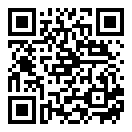Pages:
51-72
Receive Date: 2026/02/09
Accept Date: 2026/02/09
Abstract:
Frome the emergence of human social life, there appeared interaction and participation Umong human beings which lasted for ages. In the 60’s scientists realized this as a power and they called it “social capital”. later on, many studies were Carried out on the concept social capital they showed that social capital, despite having positive effects, could bring about oppositions and contradictions in the soviety. With the accumulation of social capital may occur problems such as “Adverse Selection”, “Moral Hazard”, and “Free Riding” and "Group fish". So social capital is not always profitable. This paper seeks to introduce the concept “Religious Capital” based on Islamic doctrines showing that religious capital has the merits of social capital but it does not have its defects. So religious capital has much more positive effects than social capital in achieving the developmental objectives.
چکیده و کلیدواژه فارسی (Persian)
Title :سرمایه اجتماعی یا سرمایه مذهبی،کدام یک برای اقتصاد مطلوبترند؟
Abstract:
در طول تاريخ زندگي جمعي انسان، مشاركت و تعامل بين افراد حائز اهميت بوده است. دانشمندان، از دهه 60 ميلادي، به اهميت اين قدرت در جامعه پي برده و آن را «سرمايه اجتماعي» ناميدند. علي رغم آثار فراوان مثبتي كه اين سرمايه دارد، در بسياري موارد موجب ايجاد نزاع و رويارويي در جوامع شده است. علاوه بر اين، با انباشت سرمايه اجتماعي، هيچ ضمانت اجرايي براي پايبندي افراد به قوانين موجود در گروه وجود ندارد. دراين راستا، مشكلات رفتاري همچون سواري مجاني، كژگزيني، كژمنشي و پيگيري كوركورانه منافع گروه در قالب گروه خواهي شكل ميگيرد. اين امر حاكي از شكست اين باور است كه «سرمايه اجتماعي يك خوبي مطلق است». اين نوشتار، با استفاده از روش تحليلي به معرفي مفهوم «سرمايه مذهبي» با تأكيد بر مذهب اسلام، ميپردازد. فرضيه مقاله آن است سرمايه مذهبي علاوه بر دارا بودن فوايد موجود در سرمايه اجتماعي، نقصانهاي آن را ندارد. ازاين رو، اقتصاد با پيگيري انباشت سرمايه مذهبي قادر خواهد بود به كارايي بيشتري دست يابد.
References:
- پيران، پرويز و ميرطاهر موسوي و ميرطاهر شياني(1386)، «كار پايه مفهومي و مفهوم سازي سرمايه اجتماعي»، رفاه اجتماعي، شماره 23.
- دليري، حسن دليري، «اثر سرمايه اجتماعي بر رشد اقتصادي در استانهاي ايران»، پايان نامه كارشناسي ارشد اقتصاد، دانشكده علوم اداري و اقتصاد، دانشگاه اصفهان، اصفهان، (ب، 1388).
- دليري، حسن، «سرمايه اجتماعي، سراب يا مدينه فاضله»، حقوق اقتصاد، شماره چهارم و پنجم، ص 74-85، (الف، 1388).
- رناني، محسن و حسن دليري، «ايا سرمايه اجتماعي واقعاً سرمايه است؟»، راهبرد ياس، ش 19، پاييز 1388.
- شجاعيزند، «نقش روشنفكري ديني در عرفي شدن؛ منع يا تسهيل»، راهبرد فرهنگ، ش 4، ص 25-7، 1387.
- عزتي، مرتضي و لطفعلي عاقلي، «سرمايه مذهبي: ماهيت، عناصر تشكيل دهنده و آثار آن»، مجموعه مقالات همايش اقتصاد اسلامي و توسعه، دانشكده علوم اداري و اقتصادي، دانشگاه فردوسي، ارديبهشت 1387.
- مهرگان، نادر و حسن دليري، «نقش سرمايه مذهبي (اخلاق) د رتوسعه اقتصادي»، راهبرد ياس، ش 21، بهار 1389.
- مويدفر، رزيتا، «بررسي روند تحولات سرمايه اجتماعي و پيامدهاي اقتصادي آن درايران: ارائه يك الگوي نظري»، پايان نامه مقطع دكتراي اقتصاد، اصفهان، دانشگاه اصفهان، دانشكده اقتصاد و علوم اداري، 1385.
- نظرپور، محمدتقي و مصطفي منتظري مقدم، «فرهنگ اعتماد ساز در انديشه ديني و نقش آن در توسعه اقتصادي»، اقتصاد اسلامي، ش 31، ص 69-37، 1387.
- Arrow, K.J, "Observations on Social Capital. In: Dasgupta P, Serageldin I (Eds) Social Capital: A Multifaceted Perspective. The World Bank, Washington DC, PP. 3–5, 2000.
- Breier, M. Visser, M.” The Free Rider Problem in Community-Based Rural Water Supply: A Game Theoretic Analysis”, Southern Africa Labour and Development Research Unit Working Paper Number 06/05. Cape Town: SALDRU, University of Cape Town, 2006.
- Carpenter, Jeffrey P. , Amrita G. Daniere, Lois M. Takahashi,” Cooperation, trust, and social capital in Southeast Asian urban slums”, Journal of Economic Behavior & Organization Vol. 55 (2004) 533–551, 2004.
- Coleman. J, Foundation of Social Theory, Belknap Press, Cambridge MA, 1994.
- Field, J., Social Capital, Rutledge Taylor & Francis Group, London and New York, 2003.
- Guiso, l. and Lui Gi Zinglales, "The Role Social Capital in Financial Development", NBER Working Paper, No. w7563, 2001.
- Hanifan. L., "The Rural School; Community Center", Annals of American Academy of Political and Social Science, 67, PP. 130-138, 1916.
- Katz, F & Lazarsfeld, "Personal Influence", New York: FreePress.
- Pollit, M., "The Economics of Trust, Norms and Networks", Business Ethics: A European Review, Blackwell Publishers, pp.119-128, 2002.
- Portes, A., "Social Capital: its Origins and Applications in Modern Sociology", Annual Review of Sociology, Vol. 24, PP. 1-24, 1998.
- Putnam, R., Bowling Alone: the Collapse and Revival of American Community, Simon and Schuster, New York, 2000.
- Schultz, T.W., "Investment in Human Capital", American Economic Review. 1961, Vol. 51.
- Silkoset, R.,” The Dark Side of Social Capital”, Abstract submitted to the 2008 MOPAN conference.
- Svendsen, Gunner L.H and Svendsen, Gert T., "Measuring Social Capital: The Danish Co-Operative Dairy Movement", Sociology Ruralis, vol. 40, No.1, PP.72-86, 2000.
Cite this article:
RIS
Mendeley
BibTeX
APA
MLA
HARVARD
VANCOUVER
APA | MLA | HARVARD | VANCOUVER
Mehregan, Nader, , Hasan.(2026) Social Capital or Religious Capital, One which is more Useful for the Economy?. Ma`rifat-e Eghtesad-e Islami, 1(2), 51-72
APA | MLA | HARVARD | VANCOUVER
Nader Mehregan; Hasan ."Social Capital or Religious Capital, One which is more Useful for the Economy?". Ma`rifat-e Eghtesad-e Islami, 1, 2, 2026, 51-72
APA | MLA | HARVARD | VANCOUVER
Mehregan, N, , H.(2026) 'Social Capital or Religious Capital, One which is more Useful for the Economy?', Ma`rifat-e Eghtesad-e Islami, 1(2), pp. 51-72
APA | MLA | HARVARD | VANCOUVER
Mehregan, N, , H. Social Capital or Religious Capital, One which is more Useful for the Economy?. Ma`rifat-e Eghtesad-e Islami, 2026; 1(2): 51-72




